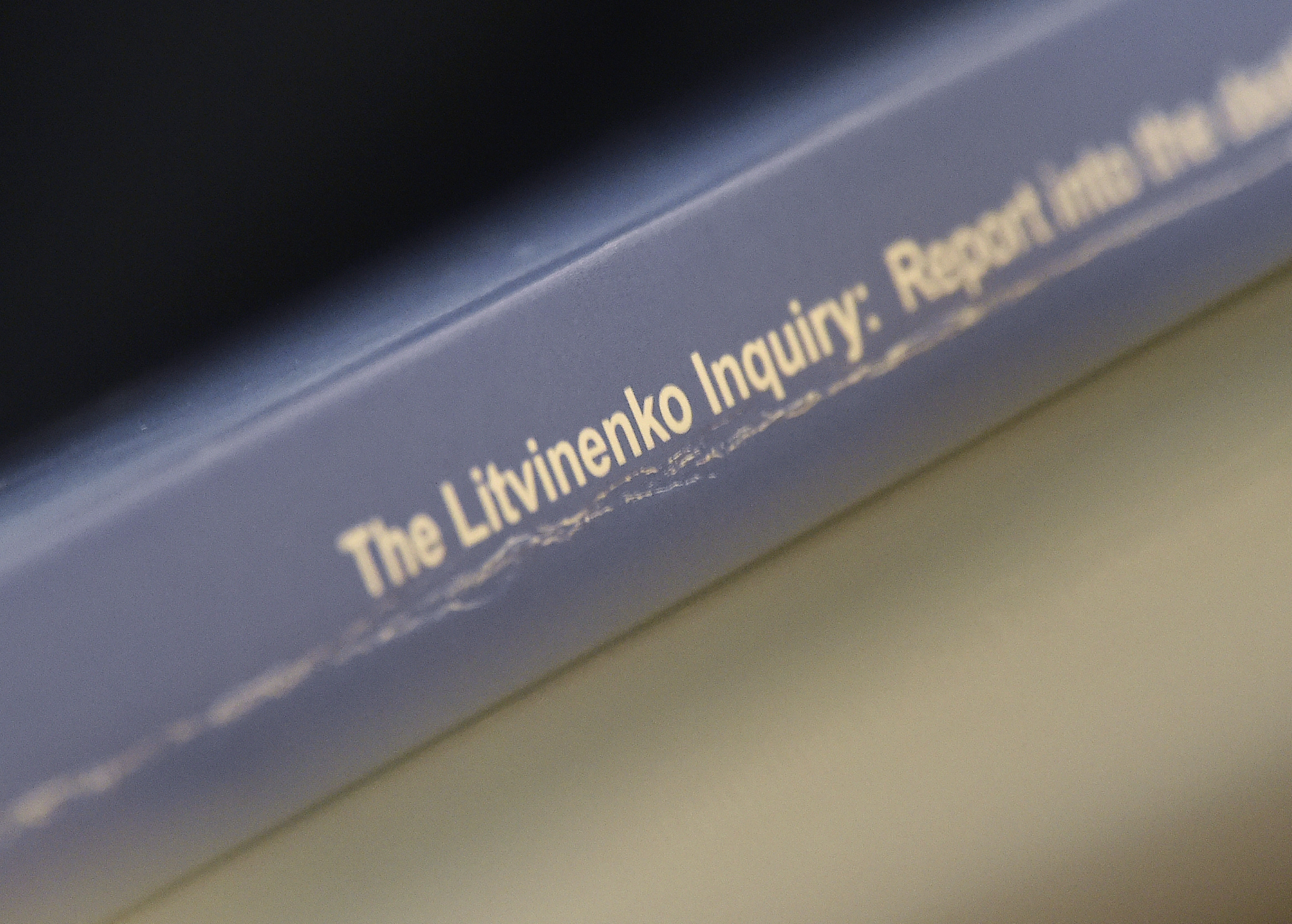רוסלאַנד
רוסלאַנד פאַראַנטוואָרטלעך פֿאַר ליטווינענקאָ מאָרד, אייראפעישער רעכט געריכט כּללים


דער אייראפעישער קאָורט פון מענטשנרעכט האָט געאורטיילט דינסטאג (21 סעפטעמבער) אַז רוסלאַנד איז געווען פאַראַנטוואָרטלעך פֿאַר די 2006 מאָרד פון עקס-קגב אָפיציר אלעקסאנדער ליטווינענקאָ, וואָס איז געשטארבן אַ יאַגנייזינג טויט נאָך ער איז פּויזאַנד אין לאָנדאָן מיט פּאָלאָניום 210, אַ זעלטן ראַדיאָאַקטיוו איזאָטאָפּ. שרייַבן גוי פאַולקאָנברידגע און מיכאל האָלדען.
דער קרעמלין קריטיקער ליטווינענקאָ, 43, איז געשטאָרבן וואָכן נאָכן טרינקען גרין טיי מיט פּאָלאָניום-210 אין לאנדאן'ס פּלאַש מיללענניום האָטעל אין אַן אטאקע וואָס בריטאַן האָט לאַנג באַשולדיקט אין מאָסקווע.
אין זיין פּסאַק, די אייראפעישע קאָורט פון מענטשנרעכט (ECHR) געפונען אַז רוסלאַנד איז פאַראַנטוואָרטלעך פֿאַר די מאָרד.
"עס האָט געפֿונען אַז די מאָרד פון מר ליטווינענקאָ איז צוגעשטעלט צו רוסלאַנד," האָט איר דערקלערונג געזאָגט.
רוסלאַנד האָט שטענדיק געלייקנט קיין ינוואַלוומאַנט אין ליטווינענקאָ ס טויט וואָס פּלאַנדזשד אַנגלאָ-רוסיש באַציונגען צו אַ נידעריק נאָך-קאַלטער מלחמה.
א לאנגע בריטישע אויספארשונג האט געענדיגט אין 2016 אז דער רוסישער פרעזידענט וולאדימיר פוטין האט ווארשיינליך באוויליקט א רוסישע אינטעליגענץ אפעראציע צו דערמארדען ליטווינענקאָ.
עס האָט אויך געפֿונען אַז דער געוועזענער ק.ג.ב. באַדיגאַרד אַנדריי לוגאָוווי און אַן אַנדער רוסישער, דמיטרי קאָווטון, האָבן דורכגעפירט דעם מאָרד אלס טייל פון אן אפעראציע, ווארשיינליך דירעקטירט דורך רוסלאנד'ס פעדעראלע זיכערהייט סערוויס (פסב), דער הויפט נאכפאלגער פון די קגב פון די סאוועטן תקופה.
דער ECHR האָט מסכים געווען. ביידע מענטשן האָבן שטענדיק געלייקנט ינוואַלוומאַנט.
"דער געריכט האָט געפונען אז עס איז באַשטימט געוואָרן, אויסער שכלדיקע צווייפל, אַז די מאָרד איז דורכגעפירט געוואָרן דורך מר לוגאָוווי און מר קאָווטון," האָט דער אורטייל געזאָגט.
"די פּלאַננעד און קאָמפּלעקס אָפּעראַציע ינוואַלווינג די ייַנשאַפונג פון אַ זעלטן דעדלי סם, די רייזע עריינדזשמאַנץ פֿאַר די פּאָר, און ריפּיטיד און סוסטאַינעד פרווון צו פירן די סם, האָבן אנגעוויזן אַז מר ליטווינענקאָ איז געווען דער ציל פון דער אָפּעראַציע."
אויך עס האָט אויסגעפירט אַז די רוסישע שטאַט איז שולדיק און אַז אויב די מענטשן האָבן דורכגעקאָכט אַ "שאָרע אָפּעראַציע", מאָסקווע וואָלט האָבן די אינפֿאָרמאַציע צו באַווייַזן די טעאָריע.
"אָבער, די רעגירונג האט נישט געמאכט קיין ערנסט פּרווון צו צושטעלן אַזאַ אינפֿאָרמאַציע אָדער צו אַנטקעגנשטעלנ די פיינדינגז פון די וק אויטאריטעטן," דער פּסאַק האט געזאגט.
שער דעם אַרטיקל:
-

 franceקסנומקס טעג צוריק
franceקסנומקס טעג צוריקפראנקרייך גייט פארן נייעם אנטי-קולט געזעץ קעגן סענאט'ס אפאזיציע
-

 אירלאנדקסנומקס טעג צוריק
אירלאנדקסנומקס טעג צוריקTaoiseach ס ערשטער יאַזדע איז צו בריסל צו טרעפן קאַמישאַן פרעזידענט
-

 דיפענסקסנומקס טעג צוריק
דיפענסקסנומקס טעג צוריקפינאַנצן מיניסטערס געבן פאָרויס צו בוסט זיכערהייט און פאַרטיידיקונג אינדוסטריע
-

 אַוויאַטיאָן / ערליינזקסנומקס טעג צוריק
אַוויאַטיאָן / ערליינזקסנומקס טעג צוריקרעגיאָנאַל ערפּאָרץ האָבן געביטן מאַרק און עקסיסטענטשאַל טשאַלאַנדזשיז


























